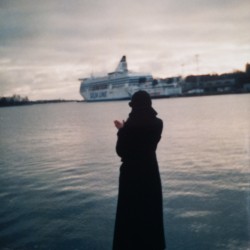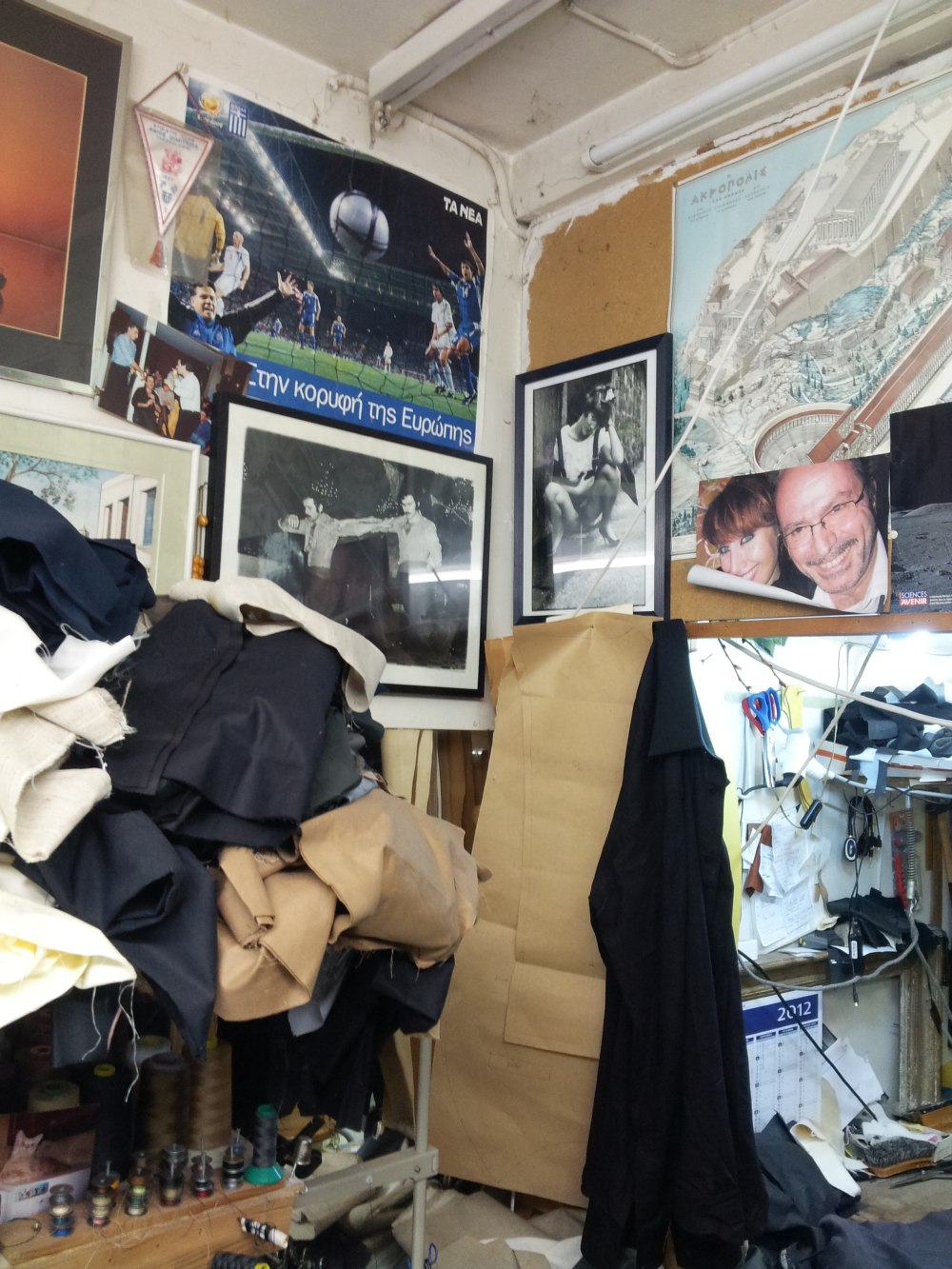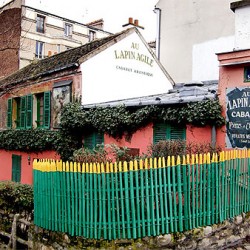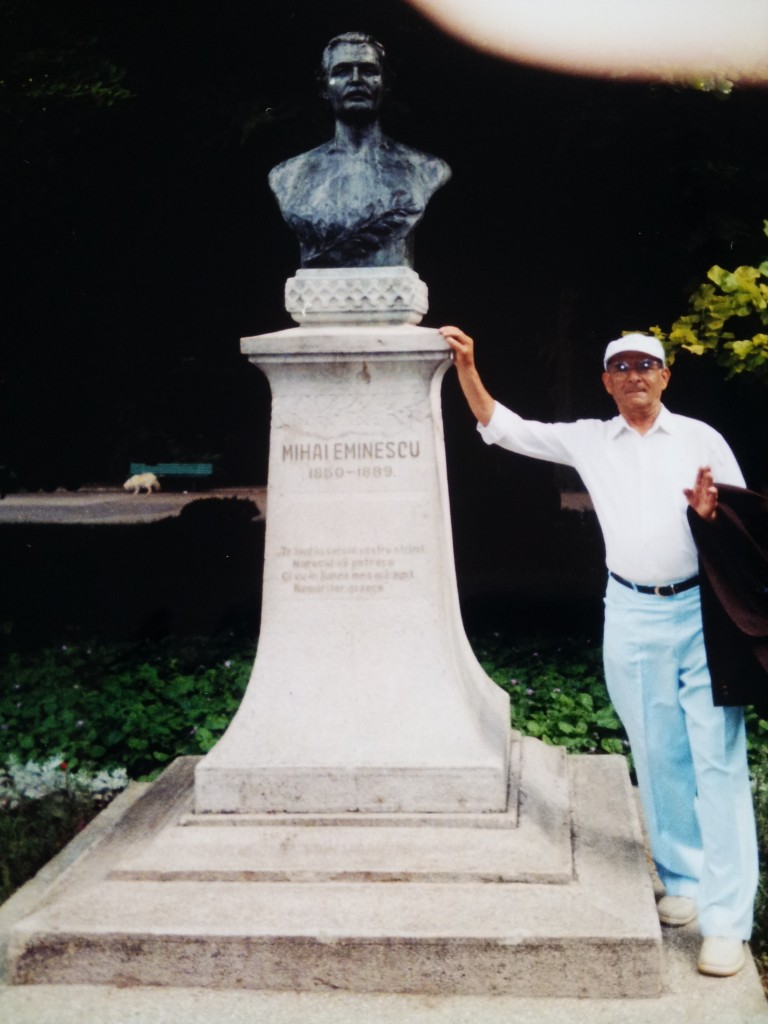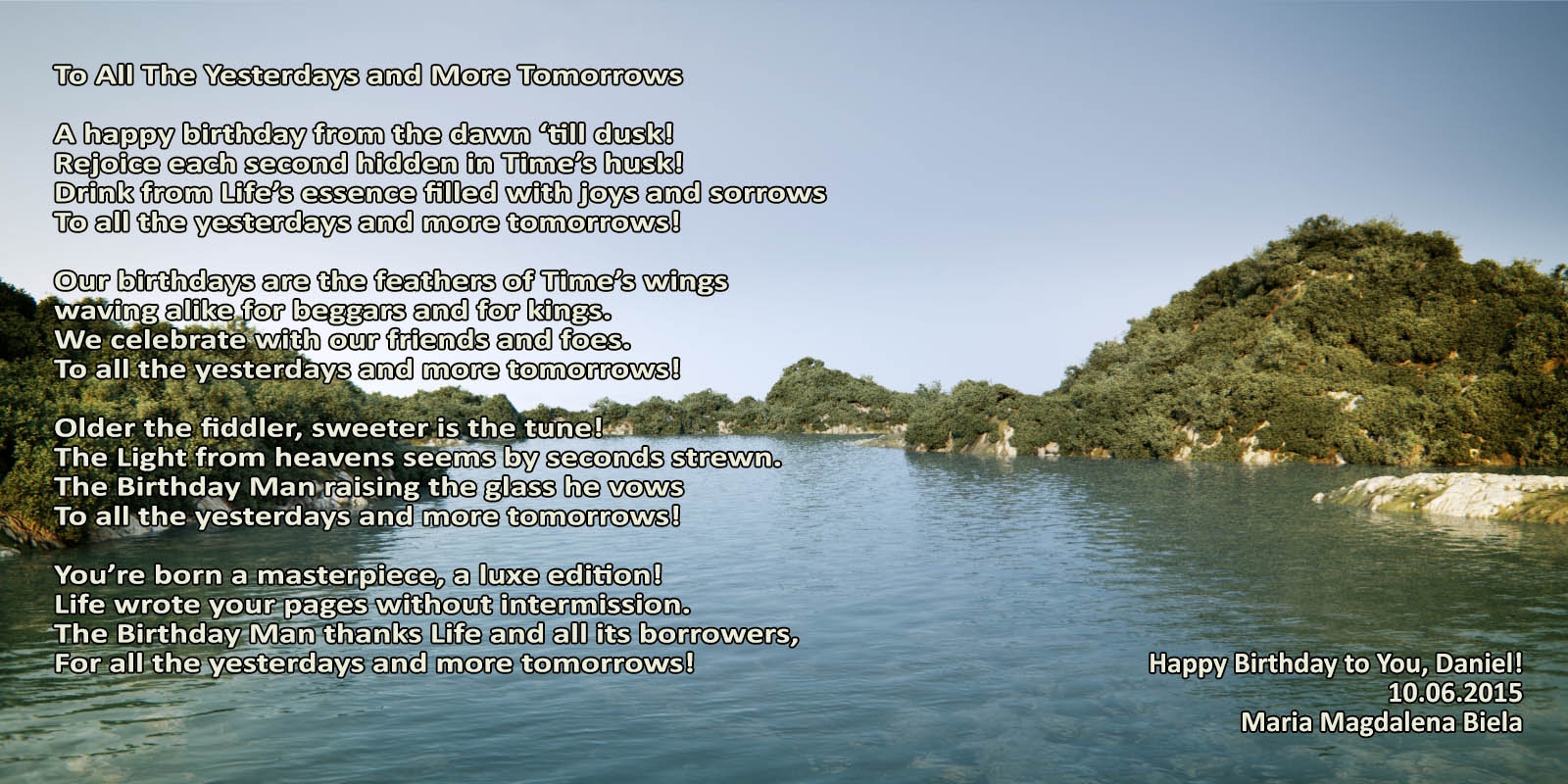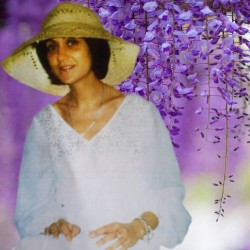- HOME
- MEDIA
- L.Onerva
- Eino Leino
- Eeva-Liisa Manner
- Erään Opon päiväkirja
- Elämänkenttäni
- Elämäni ”viiva”
- Käyttöteoriani – se miten minä ohjaan
- Kulttuuritietoinen ja kansainvälistyvä ohjaus
- Ohjauksen järjestäminen maahanmuuttajakoulutuksessa
- Ohjauksen yhteiskunnallinen viitekehys
- Ohjaukäsite
- Oma opiskeluorientaatio
- Opiskelijoiden yksilöllisyys ohjauksessa
- EETTISET KYSYMYKSET
- Psykososiaalisen kehityksen teoria
- Suhteeni erilaisuuteen ja tehtäväni opinto-ohjaajana
- Opinto-ohjauksen ja erityisopetuksen yhtäläisyyksiä ja eroja
- Kehitykseni opinto-ohjaajana
- Maahanmuuttajan uraohjaus
- Maahanmuuttajien ohjaus ja neuvonta: kuka, mitä, miten?
- Ohjauksen tulevaisuus
- Elämänkenttäni
- Mariana Marin
- Claudiu Komartin
- Mariana Codrut
- Roland Erb
- Romanian poetry
- STORIES
- READING POETRY
- translated Finnish-Romanian
- translated English-Finnish
- translated French-Finnish
- translated Romanian-English
- translated Spanish-English
- translated German-English
- translated Finnish-English
- translated English-Romanian
- translated French-Romanian
- translated French-English
- translated Romanian-French
- translated Romanian-German
June, 2015
Trei lacrimi reci de calatoare / Three cold tears of a traveller
POSTED IN translated Romanian-English June 25, 2015
Trei lacrimi reci de calatoare
Si-ai sa ma uiti –
Ca prea departe
Si prea pentru mult timp pornesti!
Si-am sa te uit –
Ca si uitarea e scrisa-n legile-omenesti.Cu ochii urmari-vei tarmul, topindu-se ca noru-n zare,
Si ochii-ti lacrima-vor poate
Trei lacrimi reci de calatoare ;
Iar eu pe tarm
Mâhnit privi-voi vaporu-n repedele-i mers,
Si-ntelegând ca mi-esti pierduta,
Te-oi plânge-n ritmul unui vers.Si versul meu
L-o duce poate vreun cântaret pâna la tine,
Iar tu –
Cântându-l ca si dânsul,
Plângându-l, poate, ca si mine –
Te vei gândi la adorata în cinstea careia fu scris,
Si-uitând ca m-ai uitat,
Vei smulge din cadrul palidului vis
Întunecatu-mi chip,
Ca-n ziua când te-afunda vaporu-n zare
Si când din ochi lasai sa-ti pice
Trei lacrimi reci de calatoare!ION MINULESCU
………………………………………………………………………………..
Three cold tears of a traveller
And you’ll forget me,
since for too far
and for too long you’re going to go,
and I’ll forget you,
since forgetting
is written in the human law.Your eyes will follow how the harbour is melting like on heaven shore
and your eyes will be crying maybe
three cold tears of a traveller.
And I, at shore,
sad will be watching how the boat sails fast on its course
and understanding that I lost you
I’ll cry for you a rhythmic verse.And my verse
will be found and given to you perhaps by other bard
And you
will join with him in singing,
with me, in crying in your heart
You’ll try to guess who was the loved one for whom was written the poem
Forgetting you forgot,
you’ll tear out my shadowed face from the pale dream
My shadowed face,
like in the moment the boat departed from the shore
and when your eyes were crying maybe
three cold tears of a traveller.
Maria Magdalena Biela
Haris
POSTED IN Stories June 25, 2015
Haris
Now, after writing his name as a title I realize that it rhymes with Paris! I did not observe that first time we met and we’ve been introduced. Maybe because in French pronunciation “Haris” becomes “Ari”, with the accent on “i”. Who is Haris / Ari?
Well, this is a wonder! Most of the tourists go to Paris to see all the history, culture, beauty, etc. Some go also to see the streets, the cafés, to enjoy a Parisian sunlight sitting on a Parisian bench in a Parisian garden, listening to Parisians talking, seeing them smiling, or just breathing the city of Edith Piaf. But some tourists are just heavenly lucky, like me, and have somebody, like a guardian angel, to show them Parisian wonders which aren’t meant for everybody’s eyes.
So, one blessed morning in Paris I met Haris. Where did I meet him? In his atelier, while he had a break. Haris is the last miracle of all times Paris. The last best tailor of the world, the most famous, the most humble, the most human, the most “Pontic Greek” (as he always likes to stress strongly: “I am born Pontic Greek, from Pontus Euxinus!”) on earth.
He made suits for the King of Morocco, but he isn’t comfortable to mention in his presence how famous he is.
The amazing part is his atelier. This great artisan with golden hands makes his miracles in a small old fashioned atelier, with old fashioned tools, in the heart of Montmartre.
Theocharis (he is very proud of his whole name, Greek name, which means “the Grace of God”) is a walking encyclopaedia. I was watching him working, I followed with my eyes his fast and intelligent fingers (they seem to have a life of their own!) and I was listening meanwhile to his stories about the land of Pontic Greece, about Crete, about Paris, about the latest films worth watching, about Zorba the Greek and the truth behind its story. His atelier is a piece of art: the last one of this kind in Montmartre, in the whole world maybe. On the walls one could see famous pictures and paintings of famous artists, photos of Haris in his youth, favourite articles from other times.
Haris has a large smile and a strong belief that life is given to us to be lived with passion. He is always ready to share his wisdom with younger pupils, which are coming to his atelier to be taught by the Maestro the art of “hand made suits”, the art of being a tailor. Haris has his own technique of teaching, starting from “how to keep and use a thimble” all the time, to make the thimble part of your finger, even not to feel its existence. When I was there, I met the young beautiful Swedish Maria, who was willing to learn this art, and about whom Haris said “yes, she has a gift”.
I hope that Maria learned from the Maestro everything she needs and that she will also put her heart and soul into this handcraft.
I will always remember Theocharis Malezas and, thanks to him, I watched the movie “Midnight in Paris”, so heartily recommended by him: for sure he belongs to that golden time of Paris and “time travelled” to meet us.
Maria Magdalena Biela
Le Lapin Agile
POSTED IN Stories June 23, 2015
Le Lapin Agile
It was like that: I walked on the streets of Montmartre, watching everything greedily, exhausting my inner eyes, seeing the surroundings, hearing now and then the voice of my friend explaining things, but my heart was running fast to Sacré-Coeur.
I did not pay attention to one particular house, all of them looked alike to me, charming “maisonnettes”, filled with flowers on their small balconies.
And then I heard: “We should come one night to see Le Lapin agile, it is a history of culture…” and the words got lost again in the tumult of my thoughts.
In the following days my friend stressed again: “when should we go to Lapin agile?”, but it was more a rhetorical question, because he knew exactly what and when to do.
And, one evening, after we ate in a Japanese restaurant, we went on our path of many stairs up the hill which led me to Sacré Coeur in my first night in Paris.
But this time it was different. We stopped in front of a “maisonnette”, one of the many around that street, he knocked on the door as if a secret ancient password would have been needed, and once the door opened, I heard people singing and I saw a mysterious man making a sign not to enter until the song was finished. I felt like Alice in Wonderland, everything would have been possible from that moment. And it was.
The song ended, we entered a darkened room filled with red lamps and people, and suddenly I found myself one hundred years ago, in the Montmartre of Picasso, Edith Piaf, Apollinaire, Modigliani. That was Paris of “l’âge d’or”. Paris of my dreams.
Have you seen “Midnight in Paris”, my unknown reader? It was exactly like that, but instead of a taxi to bring me one hundred years back in time, this time for me it was A DOOR opening to the past, the glorious past when Art was Art, and not just a pale imitation. We took our seats around the table shyly, while people were singing old French songs, songs I knew by heart since my childhood and I found myself singing with them.
“Alouette, gentille alouette”, “Plantons la vigne”, “Les Champs – Élysées”, “Chevaliers de la Table ronde”.
And then the same mystery man came with “la boisson de la maison: cherry brandy” and offered it to us. Amazingly, it was the same drink as in my country, only we call it “vișinată”. Soft, tasty, and I very much liked to eat the fruits! Then, one by one, the Artists performed. On the walls there were Picasso’s shadows and memories. He sat maybe on the same chair, paying for his lunch by painting.
I heard Apollinaire’s “Sous le Pont Mirabeau”.
But my favourite of Lapin agile was a mignone “accordioniste”, who reminded me of Edith Piaf. Not only that she sang Piaf’s songs, but she had something from her smile, her way of being. I don’t know her name, that’s why I keep calling her “L’ Accordioniste”, like the song “de la Môme Piaf”.
That night ended too fast. I was brought back to my century too abruptly, I did not like what I saw in my real world. I left part of me there, in Montmartre and somehow in that “maisonnette” where I found the honest “me”, the one I was as a child, singing French songs without reasons. I know, tourists go to Paris to “Les Folies Bergère”, “Le Moulin Rouge”, because “when in Rome, do as Romans do”, when in Paris, one must see places which were the most famous in the past and now, in our commercial present.
Le Lapin agile is not such a place, used by movie makers, burning with powerful lights to make visual noise about its existence. Le Lapin agile was discreet but known one hundred years ago as it is now. This place means Montmartre, means the real Paris with the mystery of candle light, artists who fight for art like they did a hundred years ago. None of those artists who frequented Le Lapin agile in the past were rich, or famous. One painted for food, another one sang, another one wrote. But now, they are immortal because they painted, and sang, and wrote a hundred years ago to survive, and they survived eternity.
Maybe I am a dreamer, but I have learned something in Montmartre: “the true sign of intelligence is not knowledge, it is imagination” (Einstein). Isn’t that right?
Maria Magdalena Biela
Every Arthur needs his Merlin
POSTED IN Stories June 21, 2015
Every Arthur needs his MerlinLife is a puzzle, if one asks me. I cannot speak for every human on this planet, but for me, the one and the only me, life is a puzzle. I have been trying to make some sense into its pieces since I know myself, but every time I seem to put together as a whole some of them, something new appears like not fitting into my big design and then I wait for another piece, and another piece. But, this is normal, isn’t it? If my puzzle were to be ready, my life would be at its end, I guess. Are there people whose life goes perfectly and smoothly from the beginning until the end? I remember that Omar Khayyam defined life as a “chess game of Destiny”.
“But helpless pieces in the game He plays Upon this chequer-board of Nights and Days He hither and thither moves, and checks … and slays Then one by one, back in the Closet lays.”
The Destiny is playing chess alone and we, the humans, we are all mere pawns on his chessboard. He moves us, he decides our winnings and losses, he throws us in the box of nothingness once he gets bored by the game. Then, what choices do we have? Why bother then to wake up in the morning, to go to work, to worry about our well being, knowing all along that everything we do it is predestined, it is previewed? Is it fair? Is it true? Is it acceptable?
The brightest minds of the world seemed to share over the centuries the same definition of life as Omar Khayyam.Seeing life as a puzzle it appeared more appealing to me. At least in a game of puzzle I’d have the right to see the pieces and the liberty to arrange them as I think it fits.
I know, some people desire strongly to make their puzzle perfect from the first try. They even push some pieces into fitting, although it might be not their right places. They ignore the mistakes in their puzzle, and this can be seen later, and cannot be fixed unless one destroys the whole puzzle and starts from the beginning.
Some are brave enough to accept the challenge; some are afraid and continue their flawed puzzle until it is too late. This is my definition of life. I know, it is lacking the idea of “I build my own future, I am the master of my own fate”, but I really do not believe in this. I believe that we might have the power to learn from our mistakes, to accept what is given to us and not to fight evil fights, to do good, no matter what.
I believe also that some things are beyond our comprehending and, sometimes, we might not have a saying in the matter, and we should not push life harder than possible, we should just take a breath, because, I also believe that, in the end, every piece will fall into the correct place.
I never planned anything to happen, I never thought about the future, worrying and carefully thinking what shall be done step by step to achieve my goals.
And yet my goals became reality, no matter what obstacles I had to overcome. And Lord, didn’t I have! I trained myself into the curiosity: “what tomorrow brings ?” and I know that it is not in my powers to change the course of events.
“Everything happens for a reason “, another cliché I hear around me. I do believe it is true, despite the “cliché formula” of the saying. At least in my case it is 100 % true. Everything I did or did not do in this life stormed a chain of happenings, who built in the end the puzzle I find myself staring at right now. People get tired, grow apart, stop talking, never talk, trust, mistrust, imagine things the way they want to be, refuse to see things the way they really are, cheat, are faithful. All of these pieces of the puzzle called life one day find their correct place and take a shape which we might like it or we might not. I for one refuse to refuse the reality. I refuse to replace the talking in my life with text messages, emails, virtual presence, polite presence, absent presence, conventional presence. I talk. I watch people in the eye and say words, even if I feel that that makes people uncomfortable. The moment will come, when people will realize that talking face to face it is not a disease, it is not contaminating, it is not tiring, it is only human. I hug people, even if I know that not everybody likes it. I tell people how beautiful they are, how wonderful they are, even if sometimes it seems to be inappropriate. Maybe I refused some pieces when I accepted to play my puzzle.
We all need to believe that every Arthur needs a Merlin. I learned from my books that the truth comes from the mouth of fools and children.
I have learned, playing my puzzle that life is worth living. Life is beautiful. Life is a gift to be opened every day, a little bit at a time.
Maria Magdalena Biela
Waiting for the cranes
POSTED IN Stories June 19, 2015
Waiting for the cranesAnd again, time takes another path, back through the years, at that age of innocence, when her Papa was young and her only hero. She was around four years old, a wild child, only dark hair and dark big eyes, widely open. They lived in an old Jewish house, an inheritance of her father from his Jewish relatives who left the country and went to Israel, leaving behind a lonely Papa. That house had a wonderful yard, with lots of trees, flowers, places to hide. In spring she’d have the wildest time to express herself. First it was her strong belief that, all the migratory birds would come back to her country personally for her. Then all the trees (particularly the one at her window!) would blossom only for her and spring would come every year just to be her toy.
Hence, every year in late March she hid herself on the roof of their summer kitchen (easy to climb on for a restless child), nobody could find her there, and she was silently waiting for the cranes.
She had the strong belief that they are coming back from other lands just for her and she would see the exact moment the first crane will appear on the horizon in the evening, if she waited for it peacefully, silently, faithfully.
She always went missing at the exact moment her family was gathering around the table, so her mother always had to scream her name, to search for her, to threaten her, and so on…
The first year went well, without big punishments but also with big disappointments, because she could not see her cranes at the moment they entered her country. The second year though brought her a bigger surprise: her father.
The same ritual, she was missing from the dinner table, her mother was nervous, it was late March and she was on the roof waiting. But this time, while everybody was searching for her, father saw her sitting on the roof and holding her knees patiently, and he came next to her, climbing on the same roof, sat in the same position and started to wait…
He did not ask anything, did not say anything… After a few minutes, he whispered: “what are we waiting for?”…
And then she told him her secret: “the cranes, Papa!”Maria Magdalena Biela
The candles’ light
POSTED IN Stories June 17, 2015
The candles’ lightIt is a rainy evening and her thoughts as always are running wild. Dark outside, dark inside (she left the lights off in purpose), only the candles’ light makes Chinese shadows on the walls. She spread candles everywhere, even on the balcony. It’s beautiful. It feels warm, peaceful. Funny thing the candles’ light; she smiles while remembering how the candles and she went hand in hand her whole life but in totally different contexts than now. Back in her childhood and youth she used to write her home works, or she conceived her master thesis using candles’ light, because there was no light. No electricity, no water, cold or hot, limited amount of milk, bread, oil. She used to hate candles. Their light reminded her strongly of the darkness in her life. Because of the candle light she had to wear eyeglasses and lost her sight. Candles meant death or darkness. They were every family’s nightmare, smelly, intoxicating, not enough, necessary.
She never thought that one blessed day she’d surround herself by candles, listening to Chopin. She never imagined that there might be another part of the world where candles really meant light, the light of Christmas Eve, the light of Easter, just Light.
In her new country for the first time she saw people offering each other candles as presents, scented, colorful, healthy. Her first thought when she received a candle present on her birthday was that: “Heavens, am I about to die?”. That was the only thing she felt in her heart when she received the candle.
Of course, now, after so many years, she herself enjoys the light of candles. She buys them. She offers them. And yet, her mother did not fully understand it: “what is the deal with these candles, anyway”.
They still live in the Middle Ages there, back in her humble country. Another thought coming with a smile is about food. She likes to eat soy and tofu products very much.
To eat soy products then, in her childhood or her youth was the only way of living for average people. Now she is joking about this, telling everyone that actually the dictator wanted to keep them as a healthy nation, not to raise their cholesterol by allowing them to use fat products in excess, or drugs like coffee and cigarettes.
And also now, when herself eats only soy food because it is really healthy and keeps her in good shape physically and mentally, she thinks that her metabolism does not recognize any other kind of food but soy. If somebody asks: “how do you preserve yourself so well? What’s your secret?”, then one single answer comes to her mind: “try communism for a change, see how it feels!”
Or “I am fashionably thin due to the lack of food in my country, in my youth”.
Thoughts. Will she ever be free of comparing the past against the present? Every moment of this present life feels like it was lived before, with the same intensity but with other meanings, other fights.
The candles are getting tired slowly. Their light now makes known shadows, shadows of her past. The dogs of her childhood, the linden-trees, the clouds she watched for hours, laying on the ground, imagining stories in heaven.
The rain stays still: tip-tip-top, tip-tip-top. She wonders if there are people like she out there.
Somebody? Anybody who has the same obsessions? Same memories? One candle died. Scented. Time to let the song of the rain drive her to her nightly sleep.Maria Magdalena Biela
Hamburger ori franzela cu parizer / Hamburger or fresh bread with salami
POSTED IN Stories June 16, 2015
Hamburgher ori franzela cu parizerTimpul ne mai da cate un ghiont din cand in cand, amuzandu-se: ”iti mai aduci aminte?!”. Imi aduc aminte bine toate cele…nimic nu am uitat, cum spune Darie.
In vara lui 2005 am venit acasa in vacanta, am lasat in urma avionului Finlanda occidentala si m-am reintors ”la portile Orientului”, sa-mi retraiesc amintirile copilariei, ale adolescentei.
Pe 4 Iulie, tocmai cand SUA isi sarbatorea Independenta, eu si tata am hotarat sa mergem o fuga la Iasi, doar pentru o zi. A fi acasa si a nu vedea Iasi-ul este pentru mine o blasfemie.
Iasi-ul ma astepta cu parfumul cald si lenes al teilor infloriti. Parfum familiar…ma simteam in siguranta, mergand alene cu tata spre bulevardul Lapusneanu.
Deodata, insa, imaginea s-a frant si m-am trezit in Matrix. Un alt Iasi isi oferea chipul ciudat, isi etala bratele vlaguite, ca o femeie batrana ridicol si inutil intinerita de prea multe operatii estetice.
Un frison de dezgust…primul. Occidentul isi pusese amprenta peste Iasii mei dragi. La fiece pas un alt boutique, un alt McDonald, atat de multe si inghesuite , incat nici nu mai aveau clienti. Larma si murdarie pe strada eminesciana.
Incercam, ma fortam sa gasesc ceva din Eminescu, o bataie de inima, in tot acel zgomot infernal, insa Poetul se ascunsese doar intr-o statuie.
Tata era si el derutat de prea multele masini, care forfoteau peste tot. Eram precum doi rataciti pe o planeta necunoscuta.
Intr-un tarziu, tot incercand si unul si altul sa simulam veselia, am hotarat, la insistentele mele, infometati, sa intram intr-un McDonald
(in Finlanda sunt multe si ieftine, oamenii nu se prea omoara sa-si cheltuie banii pe fast-food-ul american).
Fete tinere, moldovence neaose, se chinuiau sa copie modelul american, asa cum le ordonase probabil managerul inca din zorii zilei de 4 Iulie. Copie jalnica a Zilei Independentei USA.
Hamburgherul era imposibil sa fie mancat, cola era pe jumatate gheata , iara nota de plata m-a facut sa plang. Aproape 30 euro cheltuisem pentru o trista imagine jenanta, care nu ar fi trebuit sa existe. Iasi-ul meu si ziua de 4 Iulie nu au nimic in comun. Ma indoiesc sincer ca America stie cand este Ziua tarii mele.
Am parasit acel loc flamanzi, nervosi, frustrati…In Finlanda as fi platit pentru un hamburgher, cartofi prajiti si cola doar 3.50 euro.
Am incercat sa caut in mintea mea confuza un loc in care eu si tata ne puteam linisti sufletul. Si am intrat in Casa Cartii. Alta tragedie, alta surpriza trista. Casa Cartii era pustie. Carti far’ de gust, traduceri palide ale unor telenovele ori serii erotice, ori sfaturi practice à la Oprah si Dr. Phil cum sa te descurci in viata, se etalau hidos, cu copertile lor de prost gust, pe rafturile unde odinioara gaseam numai rare editii ale clasicilor.
Si am plecat. La fiece pas simteam cum Iasi-ul meu, batran ca timpul, insa cu fata reconstruita de botox, ma ruga sa nu-l judec, sa am rabdare.
Astfel, cu tot amarul in suflet, am intrat cu tata la Mitropolie. Acolo nimic nu ne putea atinge, zgomotele si mirosurile Occidentului isi pierdeau puterea.
Am regasit-o pe Cuvioasa Parascheva si, langa trupul ei, cu tot dorul si toata durerea, m-am rugat pentru tara mea.
Dupa aproape doua ore de liniste, lasand in urma lumanari aprinse si sperante infinite, am plecat spre un alt loc cu liniste: Copou.
Acolo l-am gasit pe Eminescu, stand pe o banca sub teiul lui. Ca din senin o briza a batut si a plouat cu flori de tei peste capul albit al tatalui meu, tocmai cand ii faceam o poza…Semn bun, am gandit, sunt totusi acasa, Occidentul nu-mi poate lua TOTUL.
Spre seara, osteniti, am pornit usurel spre gara, flamanzi, salivand la gandul mancarurile pe care mama le pregatise acasa, in lipsa noastra. Eram rupti de foame. Si, deodata, miracolul s-a intamplat. Tata mi-a spus sa stau cuminte pe o banca, pe peron(ca pe vremea cand eram doar un copil).
A venit repede cu franzela aburinda, parizer taiat felii si doua sticle cu bere proaspata si rece.
Si acolo, pe peronul Iasilor, eu, ditamai profesoara, am mancat cu o pofta de copil franzela rupta cu mana si parizer, band bere rece direct din sticla, fara fasoane si far’ de etichete.
Simt si acum gustul bun, gustul ca sunt acasa cu Tata.
Pana sa vina trenul, in jurul nostru se adunasera caini ai strazii si pasari flamande, caci noi impartiram cu ei festinul incropit de tata.Si astfel am plecat din Iasi, fericita, alaturi de tatal meu, la ceasul cand in America incepeau focurile de artificii, iara in Iasii mei se stingeau luminile comerciale, si Poetul isi incepea plimbarea pe Lapusneanu.
…………………………………………………………………………………………………………………
Hamburger or fresh bread with salami
Time gives us all a nudge every once in awhile, amusing himself: “do you remember still?”.
I remember everything very well. How could I not? It was the summer of 2005 when I came home for the holidays, leaving behind me the airport and Finland in the West, to return to “the Gates of Orient”, to my Romania, to my childhood memories, my adolescent years.One day we decided, my Dad and I, to travel from dawn till dusk to the town of Iasi. To be home and not see my Iasi would have been blasphemy in my eyes.
It happened to be the 4th of July.
Iasi was waiting for me with the warm and lazy scent of the blossomed linden trees. Familiar perfume. Walking idly with my Dad towards Lapusneanul Boulevard, I was feeling secure, at ease, breathing the scented air so strongly missed by my soul.
Yet, suddenly, the image broke and I woke up in “The Matrix”. Another Iasi was offering me its weird face, as an old woman senselessly and ridiculously rejuvenated by too many plastic surgeries. A shiver of disgust. At first. It seemed like the West put its stamp on my beloved Iasi. Every metre another boutique, another McDonald, so many and cramped, that they did not even have clients any-more.
Noise and trash on the street where Eminescu once lived.I started to force my senses to find the heartbeat of the Poet in all that infernal noise, but the Poet was hiding himself inside his statue.
Too many cars moving everywhere, too fast, like termites, confused me and my Dad. We were two lost souls on an unknown planet.
Later, both of us simulating happiness, pretending to be content, we decided at my insistence and both being hungry, to enter a McDonald (in Finland there were many and cheap and people were not in a hurry to spend their money on the American fast-food).The waitresses, young girls, pure born Moldavian, were trying hard to copy the American model, as their manager perhaps ordered them to, in the early hours of the 4th of July.
Artificial, distorted fake of USA’s Independence Day in Iasi, Romania.
The hamburgers were impossible to eat. The Coke was half ice and the bill made me cry. We spent almost 30 Euro for a sad and pathetic image that should not have existed. My Iasi and the 4th of July had nothing in common. I was honestly doubting that USA knew the Independence Day of my country, let aside where and what Iasi was.
We left that place angry, hungry and frustrated. In Finland I would have paid 3.50 Euro for a perfect hamburger, French fries and a quality Coke. I was trying to find in my confused mind a place where my Dad and I would have been able to relax our tired and restless souls. We entered the book store named “The House of Books”. However another tragedy, another disappointment was waiting for us.
The “House of Books” was empty. Tasteless books, pale translations of soap operas or erotic series, or practical advice à la Oprah and Dr. Phil as in “how to make it in life” were exposing their idiotic hideous covers on the shelves where, in other times, I would have been able to find only rare, out of print editions of classic books.
So we left. With every step, I was feeling how my Iasi, old as time itself, but with a face rebuilt by Botox, was begging me not to judge him and to be patient.
With all the bitterness of this world in my heart, Dad and I entered the Mithropolia. There nothing evil could have touched us. All the noises and smells of the West were losing their powers: we were surrounded by “made in Romania” faith.
There we found Saint Parascheva and near her embalmed mummified body, I was praying for my country.
After almost two hours of silence, leaving behind burning candles and infinite hopes, we left for another place with peace: Copou, the great heavenly garden.
We found Eminescu sitting on his bench under his Linden tree. Out of the blue a breeze tenderly touched the blossomed trees and it rained down Linden tree flowers on the grey-haired head of my father, just as I was about to take his picture.
“Good sign”, I thought, “I am still home and the West cannot take everything away from me”.
With the coming evening, tired, we walked slowly to the railway station, hungry, longing for the food we were sure my mother prepared in our absence. We were as hungry as two wolves.Then, suddenly, the magic happened. My Dad told me to stay still, on a platform bench. He left and returned quickly with oven fresh bread, salami and two bottles of fresh cool beer.
And there, on that platform of Iasi railway station, I, madam teacher, was eating broken by hand bread with salami with a childish appetite, and I was drinking cool beer straight from the bottle. No etiquette, no fuss, no “lady-like” meals or gestures.
I can still taste it – the taste that I am home with my Dad, in my country, free to be myself and not a western pretender.As we waited for the train to arrive, lots of dogs and birds gathered around us, because we were sharing our feast with them.
Dad and I left Iasi happy. As the fireworks were starting in USA, the commercial lights were switching off in my beloved city and the Poet could start his lonely walk along Lapusneanul Boulevard.Bielka
To all the yesterdays and more tomorrows
POSTED IN Stories June 9, 2015
Sunday
POSTED IN contemporary poetry June 8, 2015
SundayMy Sunday is a gorgeous sunny day (f-i-n-a-l-l-y the sun shines!). I’m sitting on my balcony, with finches and robins flying loops in the space between two big maples trees. I’m reading the June-July issue of American Poetry Review, there are 12 new poems by Elaine Equi, a fine poet, and there’s an essay, “Why Poets Translate” I’m reading next, unless I get too distracted watching the birds.
Did I tell you about the finches that built a nest just above my balcony door? I can see the top of the female’s head as she sits on the invisible eggs warming them into eventual birth.
The male finch perches on the balcony railing and chatters at me. I’m sure in his mind I am the intruder, not him.
This in miniature is the whole drama of life on earth as one generation replaces another. But we humans complicate the drama with our emotional and intellectual natures – it’s the glory of being human that NOTHING IS AS SIMPLE AS IT SEEMS.
And so as I sit here with my book face down on my lap, watching the male finch scold me, seeing the other birds swoop between trees, and squirrels chasing each other at unbelievable speeds, I’m content to have no thoughts for a change, and just let time pass and carry me along with it.The lawn below my balcony extends for about 45 feet, there’s a screen of trees and bushes that hides the drop-off, a cliff side that plummets down to an invisible golf course!
I can’t see the players, but I can occasionally hear them. But golf is not an intensely driven game and the players are sedate, so I’m undisturbed by their presence.
The loudest thing I hear are their golf carts! And what I can see of the golf course spread out far below me is so lovely: a diamond-shaped lake with an island in the centre, a sight always peaceful and charming, it reminds me of a Chinese painting.
This is a calming place. I’m lucky to have found it.
And to think just one mile away is ROBERT STREET, one of the longest streets in the Twin Cities that is packed with car dealerships, fast food joints, chain restaurants, Wal-Mart, Target, other retailers, computer companies, phone, etc. etc.
The urban blight of modern America – commerce, commercial, commercialism, on it goes,
B-U-T I don’t see or hear it, it’s another world from mine. I have finches and Chinese art, quiet and calm, poetry and nature. LIFE IS GOOD.You could say I’m philosophical today too. Mine is the real Epicurean philosophy of life as a measured pursuit of delight, not wanton pleasure but balanced pleasure. It’s in between Puritanism and Licentiousness; we avoid the extremes for the sakes of health, well-being and decency. This is all part of the philosophy of Humanism.
It’s always great communicating back and forth with you, but in my imagination, it’s as if we were sitting together in the same spot, just talking . . .
All my Finches!
Daniel Brick
Note de Primavara / Spring notes
POSTED IN translated Romanian-English June 4, 2015
Note de Primavara
Verde crud, verde crud…
Mugur alb, si roz si pur,
Vis de-albastru si azur,
Te mai vad, te mai aud!Oh, puncteaza cu-al tau foc,
Soare, soare…
Corpul ce întreg ma doare,
Sub al vremurilor joc.Dintr-un fluier de rachita,
Primavara,
O copila poposita la fîntîna
Te îngîna
Pe cîmpia clara…Verde crud, verde crud…
Mugur alb, si roz si pur,
Te mai vad, te mai aud,
Vis de-albastru si azur.
George Bacovia
………………………………………………………….
Spring notes
Callow green, callow green…
Bud that’s white, and pink, and pure,
Dream of topaz and azure,
Still you can be heard and seen.Oh, please dot with your sweet-fire,
sunny sun…
my bone hurting whole in one,
in the game of times entire.With a willow whistle wild,
Primavera,
a maid arrived at font anew,
echoes you,
on the fields, chimera.Callow green, callow green…
Bud that’s white, and pink, and pure,
Still you can be heard and seen,
Dream of topaz and azure.
English version by Maria Magdalena Biela

Copyright © 2025 by Magdalena Biela. All rights reserved.
